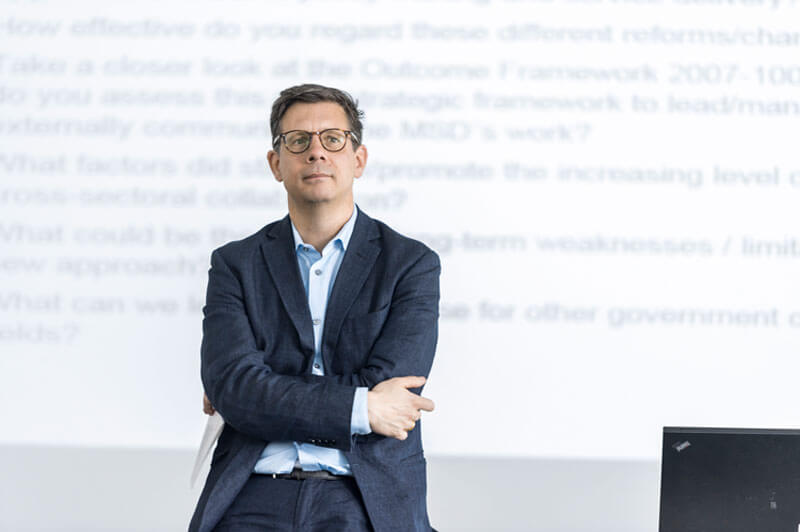Study led by Hertie School and Next:Public reveals significant changes in federal, state and municipal public offices.
COVID-19 has changed the lives of everyone, including those working in the public sector, since the first wave of the pandemic reached Germany in March. A new study by the consultancy Next:Public in collaboration with Hertie School Professor of Public and Financial Management Gerhard Hammerschmid sheds light on changes in federal, state and municipal administrations caused by the pandemic and the resulting shutdown.
The study reveals most employees in public administration believed their offices continued to function well during the pandemic, but only because they faced a bigger workload than usual. Almost half of the respondents at the federal, state and municipal levels stated that they had to deal with a higher or much higher workload. Moreover, one in four employees – at the municipal level even one in three – was assigned to work on additional tasks, such as supporting health authorities.
This was the first time that public administrators in Germany had to send so many employees into home office. Particularly in the early days of the shutdown, they had to overcome technical problems and wait for proper equipment.
While every second person at the federal and municipal level had a laptop, around 70 % of employees at the state level were equipped with laptops. Preference was given to managers, older employees and male employees. A fifth of those surveyed were very dissatisfied with the technical equipment provided, and said the IT equipment could not meet all the needs of the employees: the use of privately owned technology to perform daily work tasks increased by 20 percent during the pandemic and the shutdown.
In addition to technical obstacles, the switch to remote work and home office posed an organisational-cultural challenge. A quarter of respondents felt that communication with their colleagues was challenging. Almost 40% said that they missed seeing and talking to their colleagues in person.
As in all sectors, the compatibility of work and family life was a challenge for the administrative staff during the lockdown. While in total, only 25% reported having problems reconciling work and family life, the number went up to 39% for the 31-50 age group.
When asked about the current challenges of the pandemic, one respondent said: “The absolute lack of understanding for parents with small children; just having a laptop at home does not solve the problem of lack of care. A very typical attitude of the predominantly male management positions.”
Around 6,000 administrative employees took part in the survey, and about 5,000 questionnaires were included in the evaluation. Simultaneously, 5,000 citizens were asked about their experiences and opinions of Germany’s public administration during the pandemic.
In the survey of citizens, around 20 percent said that they used the online services of the administration more during the first phase of the pandemic. However, almost half of those who used the administration’s digital services were dissatisfied. They would like to see better accessibility, more comprehensive digital services, and better online communication and information.
Read the full study (in German) here.
An article in the Frankfurter Allgemeine Zeitung on 4 December presented the results of the study. Read the full story (in German) here.
Find an article about the survey in the Handelsblatt from 17 December here (in German)
The Hertie School is not responsible for any contents linked or referred to from these pages.
Views expressed by the author/interviewee may not necessarily reflect the views and values of the Hertie School.

